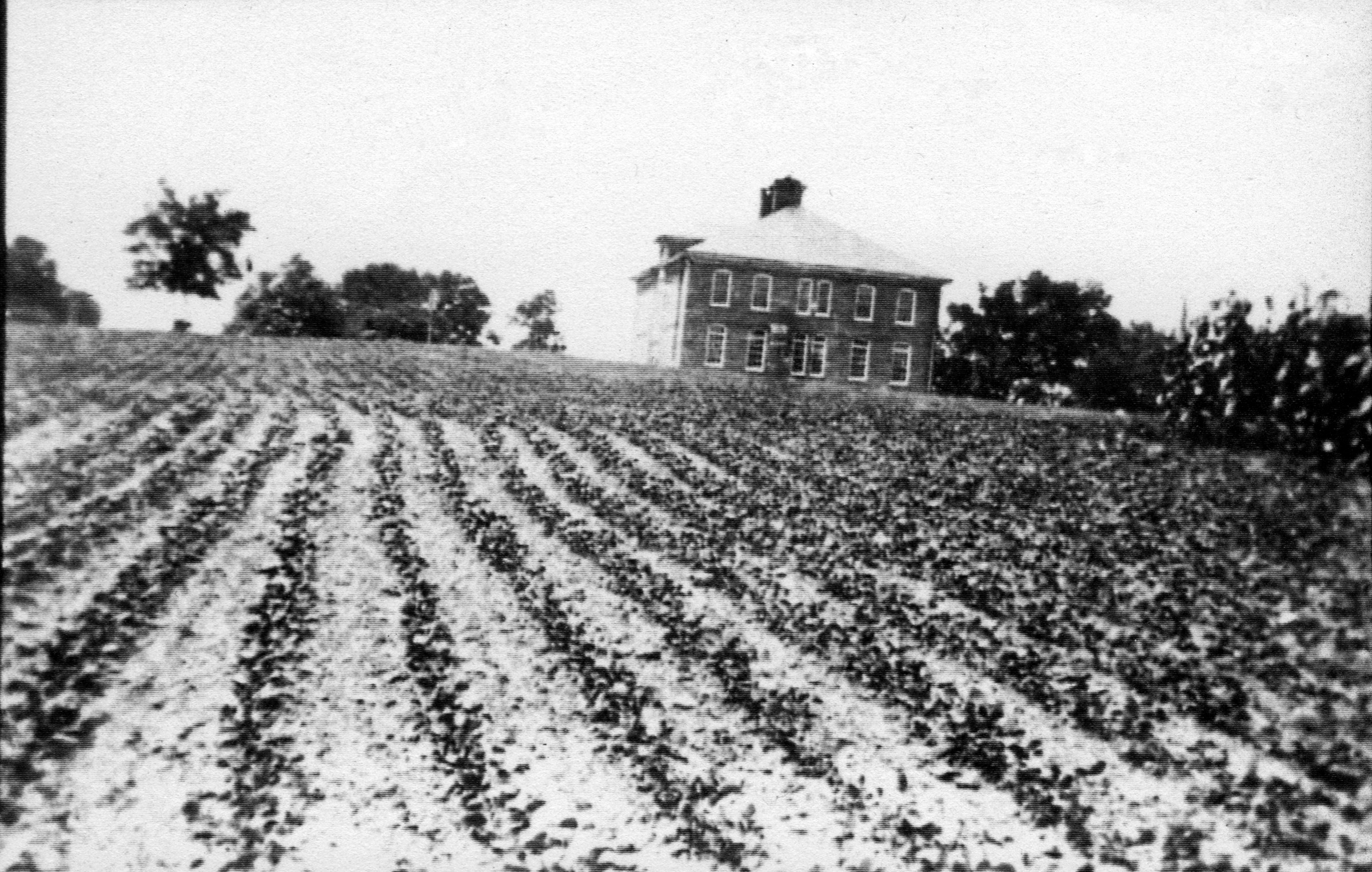As you make your way west on Kingston Pike, imagine the sight of acres and acres of beautiful rolling farmland. Imagine no big-box stores or fast-food restaurants. Imagine driving for miles with no red lights or slow cars in the left-hand lane. For that matter, imagine Kingston Pike as a one-lane road.
Those thoughts and scenes were a reality just a few short years ago. The rural community of Concord was a close-knit group of people, many being kin either by birth or marriage. Although there were a few small local stores in the area and Concord was a thriving community, the majority of the residents made a living by farming. They were proud of their new high school named appropriately after local and famous resident David Glasgow Farragut.
In 1913, the University of Tennessee’s Dr. Philander P. Claxton became the U.S. Commissioner for Education. His admiration for the people of Concord and Farragut School gave cause for him to initiate the Smith-Hughes Act of 1917, which was to provide funds for vocational high schools. As such, Farragut was named the first Smith-Hughes school in the nation and was the first school to offer agriculture as a high school course for credit.
In his Bulletin No. 49, Claxton remarked that “Farragut School was an example of a successful attempt to adapt the organization, work and ideas of a country school to the needs of country life.” He went on to say that “the community is not rich and was an ordinary farming community but they were demonstrating meeting the practical needs and requirements of country life without losing any of its value for discipline and culture.”
The rural school of Farragut was diverse with cultural events such as musical plays and dances. And regardless of their ragtag appearance with mismatching uniforms, they participated with other area schools in athletic competition. The strong and healthy farm children soon became friendly rivals with neighboring schools vying to be the best in the sports arena. And so it was that the Farragut students soon were given the label of “Farragut Farmers” as they were looked upon with disdain by the children from the city schools. But secure in their world, the Farragut Farmers shrugged off the label and continued to live and thrive in their rural environment.

The Concord Community Cannery, built in 1941, was adjacent to the garden and was a hub of community life.
A community cannery, the first of its type in Tennessee, was built by the county in 1941 and supervised by H.E. Gibson, agriculture teacher. Square dances and personal donations helped to pay for the equipment. But the writer recollects that it was missing the convenience of a good air conditioner, as large fans just moved the hot summer air around!
The small cannery was built at the back of the school, adjacent to a large garden on school grounds, and was certainly a boon to the community. As many as 80 quart-sized cans were processed in a day as families came and worked together to put up food from their gardens. It was a common practice for a farmer to swap cans from his bountiful harvest of a particular vegetable with another farmer’s harvest. The cannery became a true swap-and-shop convenience store and a place to visit with neighbors.
To summarize, the Concord community believed in hard work and faith in God and made every effort to provide for a better future for their children. Farragut schools were blessed to have dedicated, excellent teachers to meet those goals.
Today, although the rural landscape of Concord/Farragut has changed considerably, Farragut students are still associated with the label of Farragut Farmers. When they are asked the source of this label of distinction, it becomes clear that many are unaware of the honor once bestowed upon the school by Dr. Claxton.
Many Farragut Farmers have received an excellent education and have gone on to successful lives and careers. A recent award to Farragut School was published in U.S. News and World Report: The prestigious Farragut Farmers were named among the top 15 public high schools in Tennessee and the Farragut teachers ranked No. 2 in public high schools in Tennessee. Congratulations on this achievement and thank you to Dr. Claxton and the hard-working generations of the Concord/Farragut Community for their insight and investments for a good future for many Farragut Farmers soon to follow.

